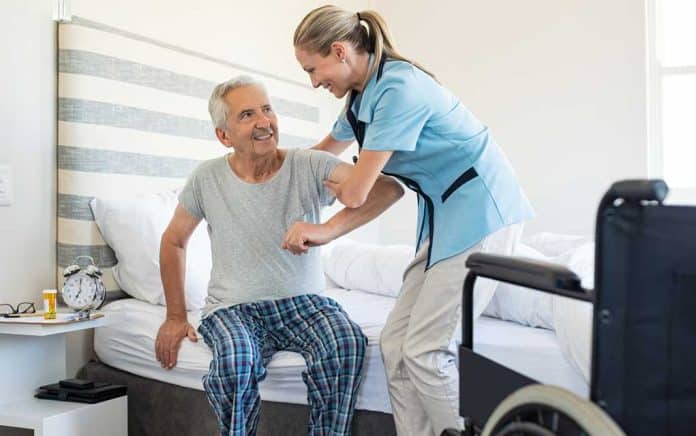
(FinancialHealth.net) – Caring for an aging parent, especially one in poor health, can be a full-time job. Senior care requires more time and attention than many have to spare. For this reason, it’s common to turn to nursing homes for support during this particularly challenging season of life.
Nursing homes are often better equipped to provide the round-the-clock care some people need. However, many decision makers experience nervousness or anxiety at the thought of leaving a loved one in the care of someone else.
This is justified as an estimated one out every 10 adults over the age of 60 have experienced some form of abuse. Ease those nerves with a plan to stay in touch with staff, attend IDT meetings, and check for red flags to help keep loved ones safe.
Stay in Touch With Staff
One of the most effective ways to make sure a loved one is safe in a nursing home is to remain as involved as possible by staying in touch with the staff. This may seem like common sense, but it can actually be challenging to carry out with so many responsibilities requiring staff attention.
Create a plan for regular contact — as often as several times each week. While phone calls are a good way to check in, the best way to be aware of what is happening in a nursing home is with consistent unscheduled visits.
At the beginning of each week, pencil in a few times to drop in unannounced, then check in with staff before enjoying some time with your loved one.
Attend IDT Meetings
An interdisciplinary team meeting (IDT) takes place between the members of a patient’s healthcare team. These meetings can include a physician, social worker, physical therapist and nursing home staff. During the meeting, the healthcare team will discuss changes in a patient’s needs and plans for care.
By attending interdisciplinary team meetings, family members can get a first-hand account of how their loved one is being cared for. This may include an open dialogue about any challenges and a chance to address concerns about the quality of care.
Check for Red Flags
Each visit with a loved one living in a nursing home is an opportunity to keep an eye out for red flags that may indicate something isn’t right. While there are some warning signs that are obvious, like injuries and poor hygienic care, other problems may require a more watchful eye.
Changes in appetite or a drastic shift in mood may be signs that care isn’t what it should be. Symptoms of depression and anxiety, such as changes in sleep habits or fearfulness about being alone, may also be warning signs. Concerning changes should be addressed with nursing home administration.
A senior’s time in a nursing home can be an enjoyable experience. And can also remove pressure from loved ones to take sole responsibility for their physical needs.
With the assurance of safe and compassionate care, family and friends can come to treasure how this additional help frees them to focus on spending quality time with their loved one.
~Here’s to Your Financial Health!
Copyright 2020, FinancialHealth.net


















